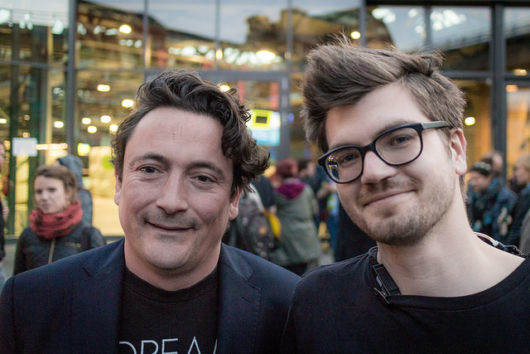Three Companies Creating Equal Opportunities

Entrepreneurship, the process of taking what seems like a simple idea and transforming it into a sustainable business model, may seem like a linear, almost formulaic path on the surface. Find a need, conduct market research, tailor a solution to that need, market your product, and just like that, a startup is underway.
And while there may seem to be a linear path for entrepreneurship, founders of startups often have to wear multiple hats, one of them being the investor hat. Startups need funding and need to raise capital in order to expand their business models. However, historically, funding and advice had only been given out to people who are already wealthy. Recently, there has been a global movement to fund startups from people of all different diverse backgrounds and ages.
In this article, three companies that are allowing everyone to have equal opportunities of succeeding, including people in developing countries, are presented.
Pioneer
Pioneer aims to bridge the talent opportunity gap. Pioneer is an experimental fund that aims to identify and nurture high-potential people. The group, comprised of three people, aims to use internet tools such as global communication and crowdsourcing to find talented candidates from a diverse range of fields.
Founder, Daniel Gross, was an 18-year-old student in a military school in Israel who sent in an idea to Y Combinator on a whim. After being accepted into the accelerator program, he was able to grow his company and eventually sell it to Apple. Now, Daniel Gross launched Pioneer, to identify talented people across the world who may not have equal opportunities.
Pioneer allows people to submit projects and have other candidates vote for each others’ projects in a leaderboard manner. The winners of these tournaments receive grants and flights to San Francisco, where they can meet with advisors, venture capitalists, and other idea makers.
Y Combinator
A slightly more established program is an American seed accelerator- Y Combinator. Y Combinator selects 120 companies every year and provides them with a seed funding amount of $120,000, along with access to an accelerator program that includes mentorship opportunities with successful entrepreneurs and venture capitalists.
Y Combinator provides seed funding to startups and nonprofits and has a special mission for social entrepreneurship. Additionally, Y Combinator is extending its global outreach, meeting with founders in Nigeria, Mexico, Israel, India and many other countries. Deemed as one of the world’s most powerful startup incubators, Y Combinator allows people from all over the world to bring their ideas to fruition.
The Thiel Foundation
Peter Thiel, the co-founder of PayPal and early Facebook investor, founded the Thiel Foundation to fund breakthrough technologies and nonprofits that engage with human affairs, government and technology.
Within the Thiel Foundation, there are three projects that provide people with equal opportunities in capitalistic society. The Thiel Fellowship offers $100,000 to students under the age of 20 to drop out of school and pursue their work, whether that be a social movement, startup, or scientific research. The second project, Imitatio, funds research and education on philosophical theories. Finally, the third project is titled Breakout Labs. Breakout Labs distributes grants to early-stage scientific research.
The underlying theme in all three projects is that there are funding opportunities for just ideas, even if they are not fully formulated or show tangible proof of concepts. Programs like the Thiel Fellowship and Breakout Labs provide a platform for visionary people who may have a world-changing idea but do not have the means to pursue it.
Opportunities like the Thiel Foundation, Y Combinator and Pioneer are using their global network to bring together people with high talent, exceptional ideas, and daring visions. Regardless of their socioeconomic background, people from all over the world can apply for these equal opportunities, making an impact not just in their community, but around the world as well. These companies can be especially useful and beneficial for people in developing countries, allowing them to compete fairly easily in a global market.
– Shefali Kumar
Photo: Flickr
